Turn any article into a podcast. Upgrade now to start listening.
Premium Members can share articles with friends & family to bypass the paywall.
You’re reading The Morning Dispatch, our flagship daily newsletter explaining all the news you need to know today in fewer than 10 minutes. To unlock the full version, become a Dispatch member today.
Happy Monday! Though it was wonderful seeing so many children out in classic Halloween costumes last Friday, TMD’s favorite looks came from Japan’s #MundaneHalloween costume contest. Highlights include “that black suit in your closet that you only wear to funerals,” “Subway station exit #8,” and “person who forgot their keys, ran to the convenience store, and is now stuck in the apartment lobby, waiting for someone to let them in.”
Quick Hits: Today’s Top Stories
- Hamas returned the bodies of three deceased hostages to Israel on Sunday evening, with Israeli authorities confirming this morning they had been identified as Col. Asaf Hamami (40 years old), Cpt. Omer Neutra (21) and Staff Sgt. Oz Daniel (19). Neutra was American-Israeli, originally from New York, and President Donald Trump spoke to his parents on Sunday evening. Hamas claimed in a statement Sunday that the three remains were uncovered in tunnels under the southern Gaza Strip. Hamas still has the bodies of eight more hostages to return as part of the ceasefire agreement solidified last month.
- Israel’s top military prosecutor, Maj. Gen. Yifat Tomer-Yerushalmi, was arrested and charged on Sunday with leaking footage last year from an IDF detention facility that purportedly showed Israeli soldiers brutally beating and assaulting a Palestinian detainee. Tomer-Yerushalmi submitted her resignation on Friday and admitted to leaking the video to the media, stating she made the decision “in an attempt to counter the false propaganda directed against the military law enforcement authorities.” Earlier on Sunday, Israeli media reported that authorities were searching for Tomer-Yerushalmi, after her family contacted the police to report her missing, but law enforcement later found her safe and unharmed at a beach. Police said she was taken for a health checkup before being arrested later that day. Prime Minister Benjamin Netanyahu claimed on Sunday that the leak was “perhaps the most serious public relations attack Israel has experienced since its founding.” Five soldiers were indicted for the abuse in February.
- Trump threatened the Nigerian government in a Truth Social post on Saturday, warning that the U.S. “will immediately stop all aid and assistance” to the country if it continues to allegedly “allow the killing of Christians,” only one day after designating Nigeria as a “Country of Particular Concern.” The president also stated that he had instructed the Defense Department to prepare for “possible action” in Nigeria, and, on Sunday, indicated that ground troops “could be” involved. On Saturday, Daniel Bwala, a spokesman and adviser for Nigerian President Bola Tinubu, denied that the government allowed any such atrocities, suggesting that Trump was trying to pressure Tinubu into meeting to discuss a prospective deal. Regarding military involvement, Bwala stated, “We welcome U.S. assistance as long as it recognizes our territorial integrity.” Read more about the violence roiling Nigeria in the July 11 edition of TMD.
- Early this morning, Russian forces fired drones and missiles on central and southern Ukraine, hitting the Dnipro, Zaporizhzhia, and Mykolaiv regions; and on Sunday, Ukrainian drones attacked energy infrastructure in Tuapse, a Russian port on the Black Sea, and in Saratov, hitting an oil refinery near the Engels military air base that is more than 460 miles into Russian territory. Earlier that day, Russia attacked the Ukrainian port city of Odesa, killing two people and temporarily knocking out electrical power to much of the city. On Friday, NATO Secretary General Mark Rutte said the provision of Tomahawk missiles to Ukraine was under review, but ultimately was up to the U.S. When asked whether he was considering this on Sunday, Trump told reporters, “No, not really.” The president continued, “At this point, we must let Ukraine and Russia settle this war themselves.”
- Defense Secretary Pete Hegseth announced on Saturday night that the U.S. military conducted another airstrike in the Caribbean targeting a suspected narcotics-carrying vessel, killing all three aboard. On X, Hegseth wrote, “This vessel—like EVERY OTHER—was known by our intelligence to be involved in illicit narcotics smuggling, was transiting along a known narco-trafficking route, and carrying narcotics.” On Friday, the Miami Herald reported, citing unnamed “sources with knowledge of the situation,” that the Trump administration had decided to attack Venezuelan military targets, which Trump denied later that day. The Wall Street Journal first reported on Thursday that the administration was actively considering the strikes on Venezuela’s military. Asked in a “60 Minutes” interview that was recorded Friday and aired on Sunday whether Venezuelan President Nicolás Maduro’s days were numbered, Trump responded, “I would say yeah, I think so.”
Gilding the Deal
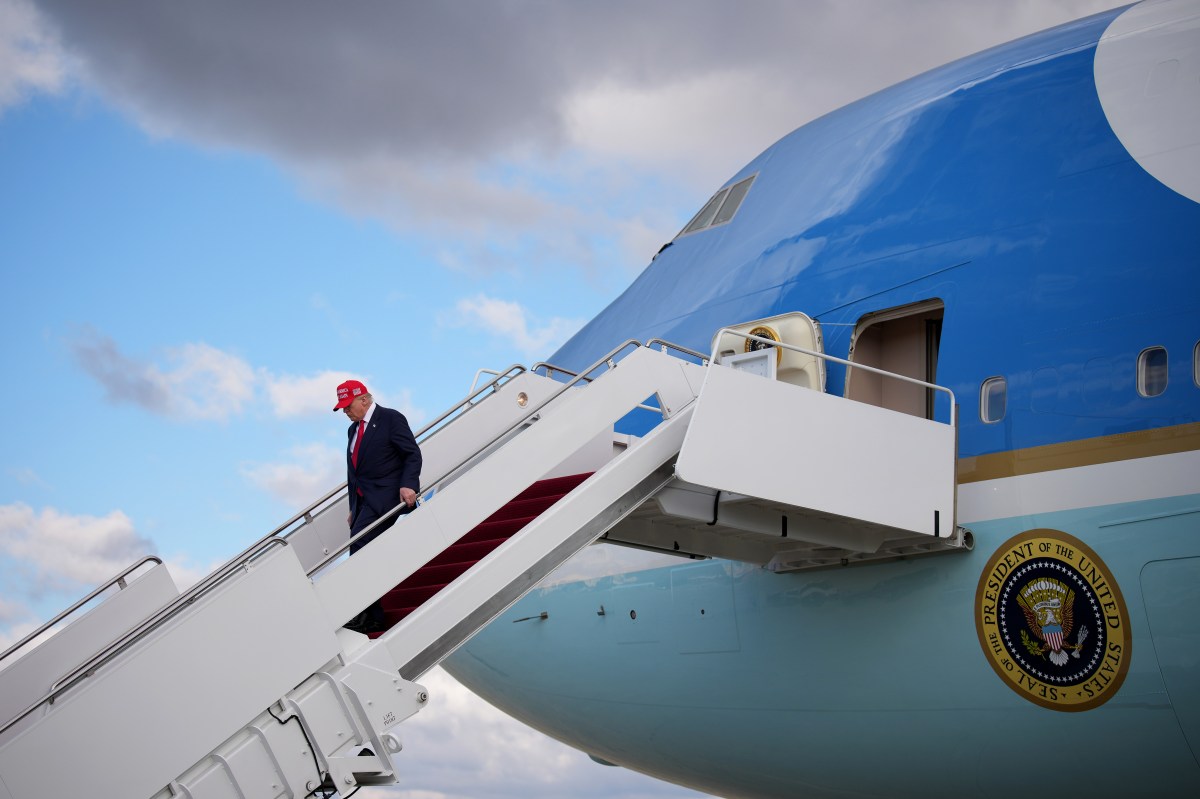
A gold-leaf-wrapped golf ball. A gold-embroidered hat. A gold collar, symbolizing South Korea’s highest honor. Gold-topped brownies. The host countries along President Donald Trump’s big Asian deal-making trip knew the American leader liked gold, and they greeted him accordingly. At South Korea’s National Museum, officials presented Trump with a replica of a golden crown from ancient royal tombs, which Korean officials explained symbolized “the divine connection between the authority of the heavens and the sovereignty on Earth.”
Trump was delighted, later saying that it was “really something” to “be the first president of the United States” to receive such a “piece of art.”
Trump’s weeklong Asia swing—the longest diplomatic trip of his second term—represented an effort to solidify agreements with U.S. allies South Korea and Japan, and to begin working toward a truce in the ongoing trade war between China and the U.S. “It was a tour de force,” Treasury Secretary Scott Bessent said of the trip on FOX News Sunday. Back in the White House with multiple agreements in hand, the president can start refining the details of a new economic relationship with the Asia-Pacific. “For all of Trump’s unorthodox approach to diplomacy and his idiosyncrasies,” Jonathan Czin, a chair in foreign policy studies at the Brookings Institution and former China director for the National Security Council, told TMD, “this [was] actually kind of a normal trip.”
You are receiving the free, truncated version of The Morning Dispatch. To read the full newsletter—and unlock all of our stories, podcasts, and community benefits—join The Dispatch as a paying member.
The administration’s focus heading into the swing was on building relations and investments with core regional allies, while defusing tensions with China. “There’s going to be very few people in the foreign policy world who would find any of that objectionable,” Czin said. “These are exactly the kind of things we should be doing with our allies and partners.”
The trip began last weekend with a visit to the Association of Southeast Asian Nations (ASEAN) summit in Kuala Lumpur, where Trump presided over the signing of a ceasefire between Thailand and Cambodia. The two nations have a long-standing border dispute, rooted in colonial-era boundary disagreements over contested temple sites in the Dangrek Mountains. After a May skirmish that killed a Cambodian soldier, tensions escalated in July with five days of intense fighting that left at least 38 dead and displaced more than 300,000 people. Under the agreement, both countries committed to withdrawing heavy weapons from their borders and to pursuing a diplomatic resolution to their recent dispute. Trump, clearly in a good mood, said that peacemaking was “much more fun for me than almost anything because you’re saving people, saving countries.”
The good feelings continued when Trump arrived in Tokyo to meet Japan’s new prime minister, Sanae Takaichi, whom you can read more about in the October 10 edition of TMD. Trump seems to hope that his relationship with Takaichi can be as warm as his friendship had been with her mentor Shinzo Abe, whom Trump called “a unifier like no other.” At Akasaka Palace in Tokyo, Trump told Takaichi, “I know from Shinzo and others, you will be one of the great prime ministers.” On arrival, Takaichi presented Trump with Abe’s own putter encased in glass, a golf bag signed by Japanese pro Hideki Matsuyama, and a golf ball covered in gold leaf.
Beyond the lavish gifts, Takaichi gave Trump no reason to doubt that Japan’s friendship would continue. Following up on an agreement signed by the U.S. and Japan in September, Takaichi added further specifics to a Japanese pledge to invest $550 billion in the U.S. over the remainder of Trump’s term in return for lowered tariffs on Japan’s auto industry. Japan’s Foreign Ministry released a fact sheet on Tuesday outlining interest from companies such as Westinghouse, Toshiba, and Mitsubishi in projects related to energy, minerals, and artificial intelligence. Takaichi also pledged to accelerate Japan’s military buildup by increasing defense spending to 2 percent of the country’s gross national product by March, two years ahead of the country’s original plan. On the sidelines of the Tokyo meeting, officials from both countries also signed a memorandum of understanding to cooperate on improving their respective shipbuilding industries.
A few days later, South Korea and the U.S. formalized a similar investment deal, in return for the U.S. lowering automobile tariff rates to match those on Japan. Most notably, further details were worked out about South Korea’s “investment fund” in the U.S. According to the South Korean government, the fund will be worth $350 billion total, with $200 billion paid in installments limited to $20 billion per year—a limit facially to prevent instability in the foreign currency exchange markets. The remaining $150 billion, according to officials, will consist of investment, financing, and guarantees by South Korean companies in the shipbuilding sector. Commerce Secretary Howard Lutnick will head a committee tasked with approving proposed projects, which will be limited to areas deemed commercially viable, and the Korean government has stated that it will primarily invest in Korean companies operating in the U.S. The U.S. also announced that it would share nuclear submarine technology with South Korea.
Though these initial stops all resulted in splashy announcements, the most anticipated meeting of Trump’s Asia swing was with the final foreign leader: Chinese President Xi Jinping. Held on the sidelines of the Asia-Pacific Economic Cooperation Summit in South Korea, Trump characterized the confab (in a social media post) as a “truly great meeting.” China’s foreign ministry said in a statement that the discussion involved an “in-depth exchange of views on important economic and trade issues, and reached consensus on solving various issues.”
According to Trump and White House officials, the U.S. agreed to reduce tariff rates on China by 10 percentage points—lowering the average rate on most Chinese goods to 47 percent—in exchange for a promise from Xi to crack down on the production of fentanyl ingredients, and for Beijing to resume the purchase of American soybeans, which it had halted as part of the trade war between the two countries. Trump also stated that China would import U.S. natural gas, but he and his Chinese counterpart provided few specifics. Both countries also agreed to delay port fees they had imposed on each other’s ships earlier this month, a move that would have significant effects on China’s massive merchant fleet.
Chinese officials also said that they would suspend the enforcement of export controls on rare earths and other critical minerals, one of their most potent weapons in the trade war, until October 9 of next year. However, Beijing will maintain export controls on other critical minerals, including those used in semiconductor production. In return, the U.S. agreed to also pause export controls on semiconductors purchased by Chinese-owned companies for a year. Notably, though, while Trump said that China could “deal with Nvidia,” he told CBS News’ “60 Minutes” that Nvidia will not be allowed to sell its most advanced Blackwell AI chips to China.
Czin, the Brookings Institution fellow, told TMD that the announcements signaled more of a trade ceasefire than a full truce between China and the U.S. Problems around soybeans and rare-earth metals—which were primarily a result of the trade war itself—were put on hold to allow the two countries to continue negotiations.
China, in particular, might be playing for time. China can “go through this rinse and repeat cycle. I think they’ve gotten comfortable doing it,” Czin said. With Trump facing high-stakes midterm elections next fall, he noted, Chinese leaders will be even better poised to threaten the same measures they used to gain concessions in this round of negotiations: soybean purchases and export controls on critical minerals.
Trump is scheduled to meet with Xi in China next year, and negotiators from both sides will hold less high-profile meetings to finalize the details of a larger deal before that summit. But international diplomacy and economics operate on longer timetables than a single trip, even a relatively lengthy one. “Now that we have the deal,” Czin said, “the negotiations can begin in earnest.”
Today’s Must-Read
In the wake of Charlie Kirk’s murder and a disturbing surge in political violence, Mike Cosper—senior contributor at Christianity Today and host of The Bulletin—argues that the real culprit isn’t left or right ideology, but something far more insidious: mass loneliness. Cosper explores how modernity’s “unbundling” of identity has left millions untethered from the institutions that once provided meaning, driving them into online echo chambers where rage festers and radicalization takes root. From the Capitol riot on January 6, 2021, to campus protests to shocking individual murders, he traces a troubling pattern of lonely individuals finding deadly purpose in virtual mobs—and warns that escalating rhetoric online is becoming “the collective chants of a mob, inciting violence in the minds of lonely individuals who are particularly vulnerable to the false promise of meaning and belonging in acts of radicalism and violence.”
Toeing the Company Line
Political Hatred Seeps Deeper Than We Think
Resisting the temptation to hate requires the courage to be kind.
Slaughter on the High Seas
Two months into Donald Trump’s unprecedented campaign of lethal strikes against suspected drug traffickers, Congress is still in the dark.
The Not-So-Curious Persistence of J.R.R. Tolkien
The Lord of the Rings still resonates, especially among men. Why?
Does AI Have a Place in the Pulpit?
Its use in churches, synagogues, and mosques might be growing.
America Needs a Free-Trade Party
Donald Trump’s tariffs are wrecking the economy—and they are a threat to the rule of law.
In Other News
Today in America:
- An explosion at Harvard Medical School on Saturday caused minor damage, but no injuries. Authorities believe it was intentional.
- A federal district judge ruled on Friday that the Trump administration must disperse Supplemental Nutrition Assistance Program (SNAP) contingency funds appropriated by Congress. The judge gave the administration until Monday to report how it would comply with his order.
- Energy Secretary Chris Wright told Fox News that new nuclear weapons testing ordered by Trump is “system tests” and “not nuclear explosions.”
- Trump reversed course and told reporters he will not attend oral arguments this week in the pending Supreme Court case that challenges his authority to enact sweeping tariffs, writing on Truth Social, “I do not want to distract from the importance of this Decision.”
- The Los Angeles Dodgers won their second consecutive World Series title on Saturday, defeating the Toronto Blue Jays in an 11-inning Game 7 thriller by a final score of 5-4. Yoshinobu Yamamoto, who closed out the game after starting Game 6, won series MVP.
Around the World:
- Carlos Manzo, mayor of the western Mexican city, Uruapan, was shot and killed on Saturday night after gunmen targeted him at a Day of the Dead celebration. Manzo was known for calling for increased government pushback against violent cartel activity.
- At least 20 people have been killed—and more than 300 others injured—in the aftermath of a 6.3 magnitude earthquake that struck Afghanistan early on Sunday evening.
- Russia’s Foreign Ministry denounced U.S. cartel strikes as “excessive” on Saturday, and publicly reaffirmed support for Venezuelan dictator Nicolás Maduro’s regime. Maduro has recently requested support from Russia and China amid potential conflict with the U.S.
- Belgian Defense Minister Theo Francken said on Sunday that the government is investigating drones spotted flying over military bases, which he believes are being used to spy on Belgium’s jets and other “highly strategic information.”
- China’s top anti-corruption commission announced this morning that it had expelled two senior government officials for allegedly accepting bribes.
On the Money:
- The Organization of the Petroleum Exporting Countries (OPEC) and non-member, allied countries, OPEC+, announced on Sunday that it would pause increasing supply in 2026, causing a spike in Brent crude oil prices.
- OpenAI CEO Sam Altman said the company is bringing in more than $13 billion in revenue annually and suggested that figure could hit $100 billion in 2027. However, Microsoft’s earnings suggest that OpenAI lost $12 billion last quarter.
Worth Your Time:
- From July: Dispatch contributor Jamie Kirchick on Tucker Carlson’s turn to antisemitism. (National Review)
- “We Found Ukrainian Kids on Russian Adoption Sites.” (Hunterbrook)
- Yuan Gao on how Xiaomi’s pivot from smartphones to electric cars has harmed its employees. (Bloomberg)
- Josh Glancy interviews Hiroshi Suzuki, the beloved Japanese ambassador to the U.K. (Times of London)
- Apoorva Tadepalli on how Zohran Mamdani won over New York’s small restaurant owners. (Vittles)
- Tyler Kepner on Yoshinobu Yamamoto’s MVP World Series performance. (The Athletic)
- Trevor May, Erik Kratz, and Scott Braun break down Game 7 of the World Series. (Foul Territory)
Presented Without Comment
Axios: Trump Says He’ll “Be Involved” in Netanyahu’s Corruption Trial “To Help Him Out”
Also Presented Without Comment
Bloomberg: Xi Quips About Backdoors During Xiaomi Phone Gift to Korea’s Lee
Xi, in South Korea to meet Trump on the sidelines of the Asia-Pacific Economic Cooperation summit, presented the pair of devices to Korean President Lee Jae Myung. In a video circulated on social media, Lee asked: “Is the line secure?” Xi chuckled, pointed at the gadgets and replied through an interpreter: “You can check if there’s a backdoor.” The two leaders burst into laughter.
Also Also Presented Without Comment
New York Post: Tennis Court-Sized Ozzy Osbourne Pumpkin Mosaic Breaks Guinness World Record for Halloween
Let Us Know
Have any thoughts or questions about today’s newsletter? Drop us a note in the comments or by emailing us at tmd.questions@thedispatch.com. We read every submission, and your message could be featured in an upcoming “Behind the Scenes” segment.
Have any thoughts or questions about today’s newsletter? Become a member to unlock commenting privileges and access to a members-only email address. We read every submission, and answer questions in the following edition of TMD.
Correction, November 3, 2025: This newsletter has been updated to remove an item about BP selling its American oil and gas business holdings.



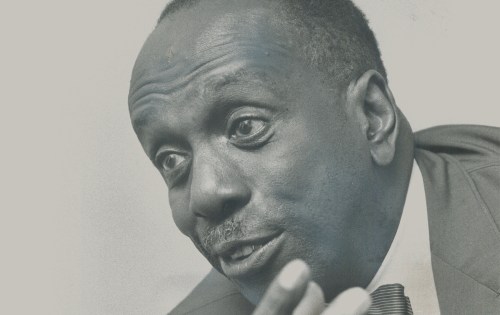
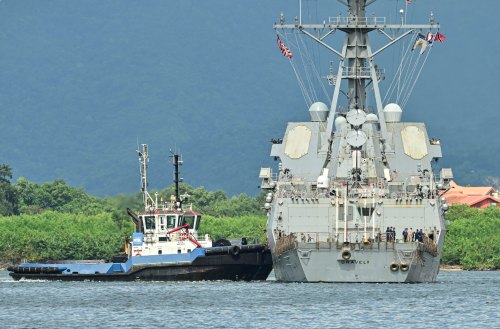
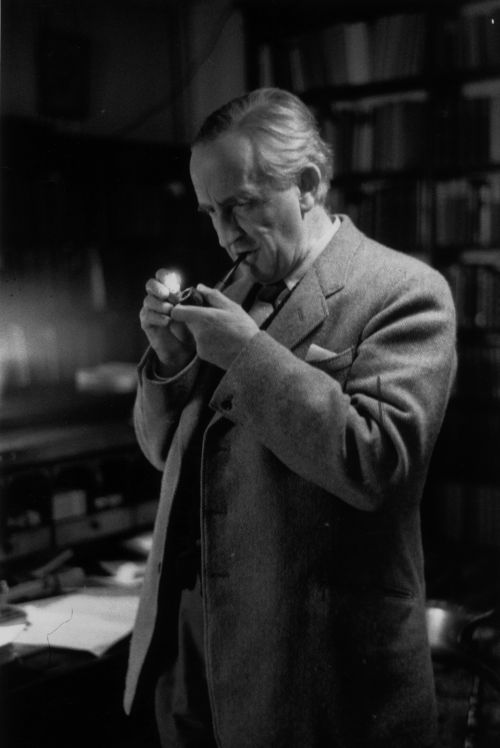

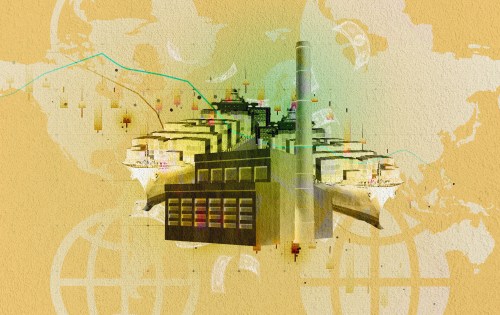




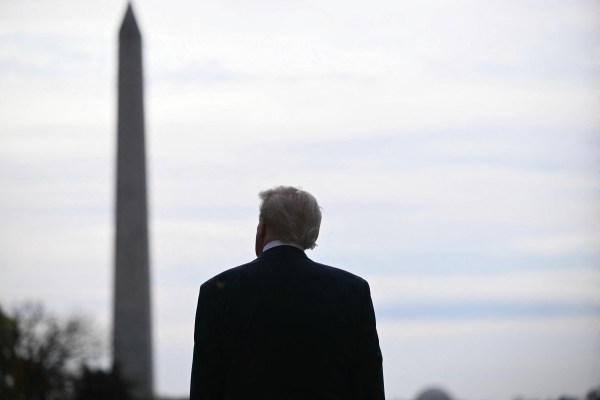
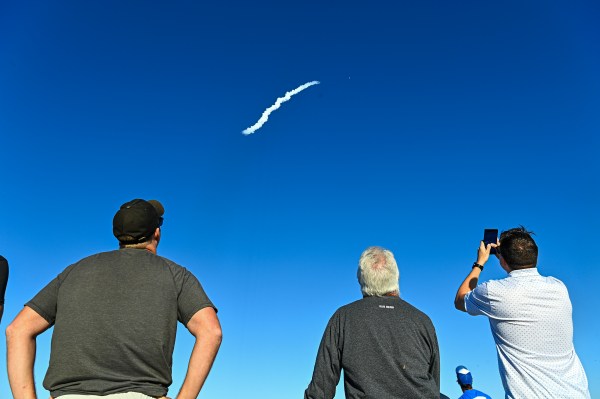

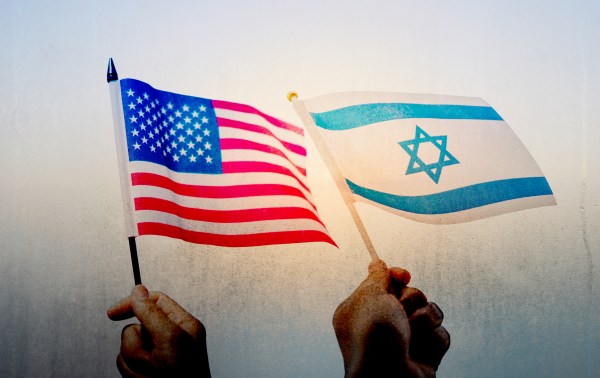

Please note that we at The Dispatch hold ourselves, our work, and our commenters to a higher standard than other places on the internet. We welcome comments that foster genuine debate or discussion—including comments critical of us or our work—but responses that include ad hominem attacks on fellow Dispatch members or are intended to stoke fear and anger may be moderated.
With your membership, you only have the ability to comment on The Morning Dispatch articles. Consider upgrading to join the conversation everywhere.